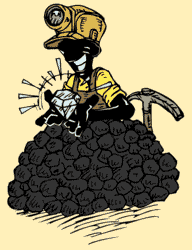 Why can’t the big businesses from whom we buy our food, gadgets, clothes and other stuff, do more to ensure that the people who farm it, fish it, assemble it or mine it work in safe conditions or get paid a sufficient sum to ensure that they aren’t forced to live their lives on the edge of existence? That is a question which Conor Woodman poses at the start of his book Unfair Trade: How Big Business Exploits the World’s Poor – and Why It Doesn’t Have To.
Why can’t the big businesses from whom we buy our food, gadgets, clothes and other stuff, do more to ensure that the people who farm it, fish it, assemble it or mine it work in safe conditions or get paid a sufficient sum to ensure that they aren’t forced to live their lives on the edge of existence? That is a question which Conor Woodman poses at the start of his book Unfair Trade: How Big Business Exploits the World’s Poor – and Why It Doesn’t Have To.
The book goes on to describe the author’s investigations in Nicaragua (unsafe diving for lobster), the UK (the ethical marketplace), China (sweat shops), Laos (rubber plantations), Congo (mines), Afghanistan (poppy cultivation), Tanzania (tea) and Côte d’Ivoire (cotton). The author is an economist, and so he does not just take as gospel the words of the fair trade lobbyists; in fact he takes the Fairtrade organisation to task over an inaccurate story on their website and he discusses his concerns over how Fairtrade certification has become commercialised.
However, it seems to me that the author has failed to display a similar degree of scepticism in relation to all of the “facts” which he encountered in writing the book. For example, he says that Congo “is the fifth largest producer of cassiterite (tin oxide) in the world. The multibillion-dollar global electronics trade would be virtually unthinkable without it.” While Wikipedia confirms that Congo was fifth largest tin producer in 2006, its share is less than 5% of the world’s supplies, suggesting that the electronics trade could quite easily survive without it if tin from Congo could be detected and blocked.
In the last chapter, the author is fulsome in his praise of Olam International, a company which buys cotton from farmers in Côte d’Ivoire. He mentions that Olam also purchase cocoa in Côte d’Ivoire, a country well known to fair trade campaigners as a home of child slave labour. Given that he had written in an earlier chapter about Cadbury’s Fairtrade certification and long-standing avoidance of slave labour, it was disappointing that the author failed to raise the same issues with Olam.
In his concluding thoughts the author provides some important guidelines. Undoubtedly it is possible for big businesses to have a positive effect on the lives of the poor, but that takes conscious and careful effort, and I agree with the author that the way big business behaves is likely to be critical to development. I enjoyed the book and warmly recommend it to others.